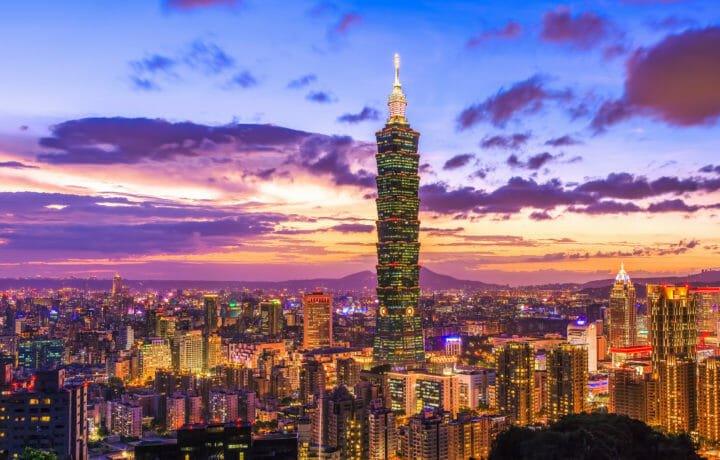China’s military ambitions have been growing steadily in recent years, posing a serious threat to the security and stability of the Asia-Pacific region and beyond. One of the most contentious issues that could trigger a major conflict is the status of Taiwan, a self-governing island that China claims as part of its territory.
Background on Taiwan
Taiwan has been enjoying a high degree of autonomy and democracy since its separation from mainland China in 1949, following the Chinese Civil War. However, Beijing has never renounced the use of force to reunify Taiwan with the mainland and has been increasing its pressure and coercion on the island in recent years.
In 2016, China passed a controversial law that allows it to use military force against Taiwan if it declares independence or resists reunification. In 2020, China conducted its largest-ever military exercise near Taiwan, simulating an invasion scenario. In 2021, China sent dozens of warplanes into Taiwan’s air defense identification zone (ADIZ), raising tensions to their highest level since 1958.
Impact on the Global Supply Chain
The situation in Taiwan is not only important for its own people, but also for Americans and their allies. Taiwan is home to some of the world’s leading semiconductor manufacturers, such as TSMC, MediaTek, UMC, and AU Optronics. These companies produce chips that are essential for various industries and technologies, such as smartphones, computers, cars, medical devices, artificial intelligence, and more.
A Chinese invasion of Taiwan would not only endanger the lives and livelihoods of millions of Taiwanese people, but also disrupt the global supply chain and market for semiconductors. According to Bloomberg, China’s military invasion of Taiwan could cost the global economy $10 trillion, which corresponds to about 10% of global GDP. This would have devastating effects on American innovation and competitiveness in various sectors that rely on semiconductors.
For example, without access to TSMC’s advanced chip production facilities in Taiwan, Apple could face shortages and delays in delivering its popular products such as iPhones. Without access to MediaTek’s chip solutions for low-cost smartphones, Samsung could lose its edge over other smartphone makers such as Xiaomi. Without access to UMC’s chip design services for automotive applications, Tesla could face challenges in producing its electric vehicles. Without access to AU Optronics’ display panels for TVs and monitors, LG could suffer losses in its consumer electronics business.
Impact of a Chinese Invasion on International Order
These are just some examples of how a Chinese invasion of Taiwan would affect American innovation and consumers. A more comprehensive analysis by The Council on Foreign Relations shows that China’s military takeover would also pose significant risks to regional stability and international order. It would undermine the credibility and effectiveness of existing security arrangements such as NATO and ASEAN. It would also challenge the norms and rules-based order that have governed global affairs since World War II.
Therefore, it is imperative that Americans care about what happens in Taiwan and support U.S. defense efforts to protect it from Chinese aggression. The U.S. has maintained unofficial relations with Taiwan since 1979 under the “one-China policy”, which acknowledges Beijing’s claim over Taipei but does not recognize it as part of China. The U.S. also provides Taiwan with arms sales under the Taiwan Relations Act (TRA), which authorizes up to $750 million worth of weapons per year.
How Should the U.S. Respond?
However, these measures are not enough to deter or prevent a Chinese invasion if Beijing decides to use force against Taiwan. The U.S. needs to strengthen its diplomatic engagement with Taiwan by increasing official contacts at all levels. The U.S. also needs to enhance its military cooperation with Taiwan by conducting joint exercises and training programs. The U.S. also needs to rally international support for maintaining peace and stability in the region by invoking multilateral mechanisms such as UN Security Council resolutions or regional forums.
By doing so, Americans can help preserve democracy and freedom in Taiwan, which is not only vital for its own people but also for their own interests. A Chinese invasion of Taiwan would have far-reaching consequences for Americans’ daily lives involving technology products from semiconductors manufacturers based in Taipei.




